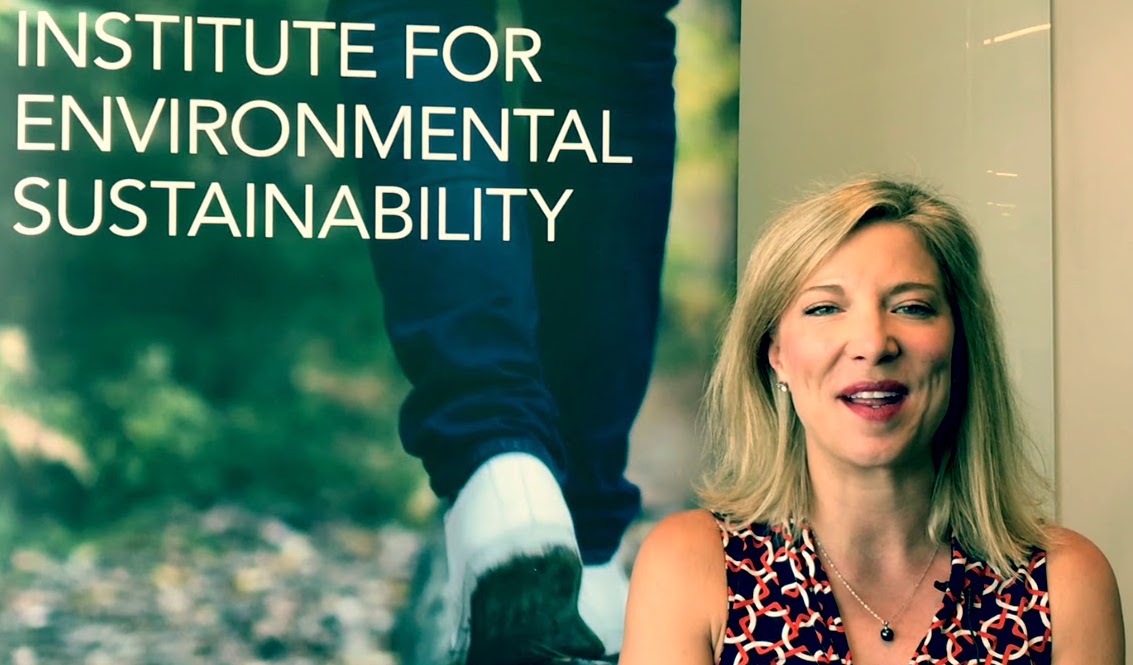The Environmental Humanities Minor examines the sociopolitical and cultural implications of key findings in environmental science. Its transdisciplinary framework draws from such disciplines as bioethics, environmental history, ecocriticism, and cultural geography. The Environmental Humanities provides a forum for critical and creative explorations of ecological, social, and technological transformation.
The minor involves a total of seven courses, including a maximum of three 1000-level courses and a minimum of one 3000-level or higher course.
Career opportunities when combined with a Bachelor's degree
Environmental Humanities students can find meaningful employment in the following areas:
- Positions at all levels of government in offices and departments dedicated to the environment
- Public relations and other kinds of work for green tech companies
- Environmental education
- Environmental journalism
- Creative production (filmmaking, visual art, writing, photography)
- Leadership and support roles in non-profit groups
- Parks, recreation and tourism offices and facilities
Students may also find the minor useful in shaping careers developed through both their majors or post-graduate study. For example, students taking law degrees could specialize in environmental law.
Learn more about the Environmental Humanities minor requirements and current courses offered.
Sample courses
Environmental sociology
Learn about the relationship between human society and the environment from a critical, anti-racist, eco-feminist perspective, with a focus on environmental justice and environmental movements. Students will also consider the relationship and tensions between capitalism and the environment.
Sustainable tourism
Study the development of the ecotourism industry. Students will examine the political, economic and management issues and trends related to ecotourism in Alberta, Canada and internationally. Students will initiate the development of a personal portfolio in this course.
Urban anthropology
Study tribalism, ethnicity, subcultures, social networks and related phenomena in urban societies. Attention will be paid to planning and applied urban Anthropology.
Ecocinema
Explore environmentally-themed cinema and the act of interpreting all forms of cinema from an ecocritical perspective. Mainstream film, documentary, interactive online cinema, eco-gaming, and experimental video will be understood through an examination of the film’s own eco-materiality and through theories of the posthuman.
Environmental management and sustainable development
Gain an understanding of management processes and concepts and their application to the field of environmental management. Specific environmental issues will also be discussed and their relationship to the management of an organization.
Environmental problems and resource management
Environmental and resource issues are introduced, with emphasis on topics such as ethics, sustainability, policy and decision-making, and management strategies. Case examples highlight issues on resource sectors including freshwater, oceans, parks, wildlife, forests and energy.
Topics in the environment, sustainability and resilience
Focus on selected themes related to the environment from the perspective of the visual and verbal arts. Varying in topic from semester to semester, it will investigate how literature, film, music, television, theatre, and/or other media shape the perception, conception, and appreciation of nature, science, technology, material cultures, and/or everyday experience.
Place- and land-based learning: decolonizing and Indigenous perspectives
Explore decolonizing and Indigenous perspectives as this pertains to ‘learning from place’ and ‘learning on the land’ in local and international contexts. Particular attention will be paid to the connections between Indigenous conceptions of place and land, and matters concerning resistance/agency, language/identity, truth/reconciliation, and knowledge/social relations.
Environmentally sustainable and healthy societies
Every human being, every institution and every organization can make a difference in the quest for a sustainable and healthy future for humankind. Examine current practices that result in unhealthy societies and non-sustainable environmental impacts and the changes that must be made in order to establish a sustainable and healthy future planet.
Philosophy and the environment
Traditional and contemporary philosophical theories and methods will be brought to bear on issues raised by the relationship between human beings and their environment. Moral and other philosophical aspects of some major issues, such as pollution, population growth, and use of natural resources, will be considered.

Uranium Cities
A new perspective
I took Film 3370: Ecocinema and it showed me how to interpret art forms from an ecocritical perspective. A minor that goes even further to study not only the cultural but broader societal effects of emerging environmental findings, especially at such a pivotal point in our history, is obviously part of an increasingly important and enlightening field of study. Buy now!
— Stephen Johnson, MRU alumnus, now studying law at the University of Calgary
Meet some of your Environmental Humanities instructors
|
|
|
|





